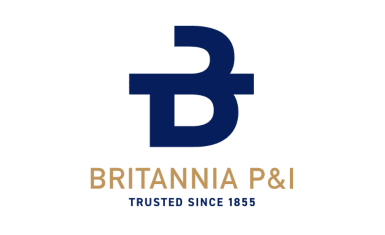 In recent years, Gard P&I Club has handled a number of claims involving the carriage of scrap metal in bulk and, from time to time, they get enquiries from Members for guidance on the handling and carriage of this cargo. Ship operators and masters should be aware of the risks related to scrap metal carriage and take risk mitigation actions accordingly.
In recent years, Gard P&I Club has handled a number of claims involving the carriage of scrap metal in bulk and, from time to time, they get enquiries from Members for guidance on the handling and carriage of this cargo. Ship operators and masters should be aware of the risks related to scrap metal carriage and take risk mitigation actions accordingly.
There are two main categories of scrap metal covered in the IMSBC Code, namely scrap metal and ferrous materials in the form of iron metal borings, shavings, turnings or cuttings. Described in the IMSBC Code – “Scrap” iron or steel covers an enormous range Continue reading “Safe handling and carriage of scrap metal in bulk”
 Aluminium phosphide, the precursor compound from which phosphine gas is generated, is available in different forms and can be supplied in aluminium bottles as tablets of about 3g each or as pellets of about 1g. Alternatively it can be supplied in fabric ‘socks’ or strips of cojoined paper sachets which enable the fumigant residues to be easily removed in the situation where it is undesirable to have fumigation residue remaining in the cargo. Generally, and as a rule of thumb, Degesch state that one 3g tablet of aluminium phosphide formulation will generate about 1g of phosphine gas.
Aluminium phosphide, the precursor compound from which phosphine gas is generated, is available in different forms and can be supplied in aluminium bottles as tablets of about 3g each or as pellets of about 1g. Alternatively it can be supplied in fabric ‘socks’ or strips of cojoined paper sachets which enable the fumigant residues to be easily removed in the situation where it is undesirable to have fumigation residue remaining in the cargo. Generally, and as a rule of thumb, Degesch state that one 3g tablet of aluminium phosphide formulation will generate about 1g of phosphine gas.


 The London Club published guidance regarding Flexible Intermediate Bulk Containers (FIBCs) and Dry Chemicals. The guide presents common hazards, as well as lessons learned for a safe operation onboard.
The London Club published guidance regarding Flexible Intermediate Bulk Containers (FIBCs) and Dry Chemicals. The guide presents common hazards, as well as lessons learned for a safe operation onboard.
 The Swedish Club in association with CWA International has produced a practical guide to help operators with the hold cleaning of bulk vessels. According to the guide, the preparation and cleaning of a vessel’s cargo holds for the next intended cargo is a vital part of bulk carrier operations. Hold cleaning requires clear planning, preparation and efficient execution.
The Swedish Club in association with CWA International has produced a practical guide to help operators with the hold cleaning of bulk vessels. According to the guide, the preparation and cleaning of a vessel’s cargo holds for the next intended cargo is a vital part of bulk carrier operations. Hold cleaning requires clear planning, preparation and efficient execution. The recently published Casebook by The Swedish Club’s highlights an incident when the Master of a ship noticed smoke coming from the forward part of the vessel. At the same time the fire detection system for cargo hold 2 sounded on the bridge. The Master described the smoke as being white at first and then greyish. The Chief Officer, however, described the smoke as being “dark grey, almost black”.
The recently published Casebook by The Swedish Club’s highlights an incident when the Master of a ship noticed smoke coming from the forward part of the vessel. At the same time the fire detection system for cargo hold 2 sounded on the bridge. The Master described the smoke as being white at first and then greyish. The Chief Officer, however, described the smoke as being “dark grey, almost black”. In a recently published casebook featuring four case studies,
In a recently published casebook featuring four case studies,  Following the surprise runaway success of the first edition of the Safety & Loss Prevention Briefings Compendium, published in January 2022 by the International Institute of Marine Surveying (IIMS), and subsequently downloaded many thousands of times, Edition II has been launched covering the period January to October 2022. It is now available to download and read in pdf or eReader formats.
Following the surprise runaway success of the first edition of the Safety & Loss Prevention Briefings Compendium, published in January 2022 by the International Institute of Marine Surveying (IIMS), and subsequently downloaded many thousands of times, Edition II has been launched covering the period January to October 2022. It is now available to download and read in pdf or eReader formats.